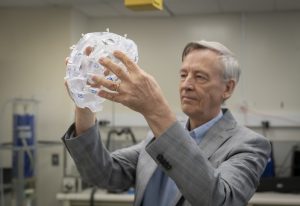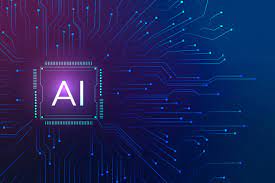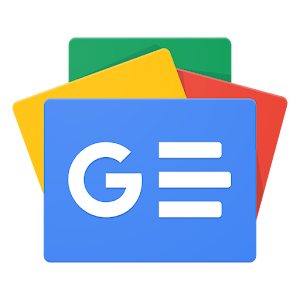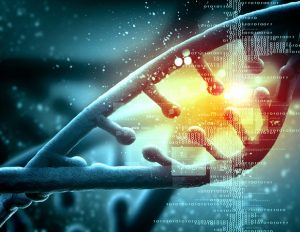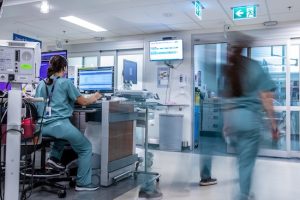Reducing Administrative Burdens in the ER with AI Tools
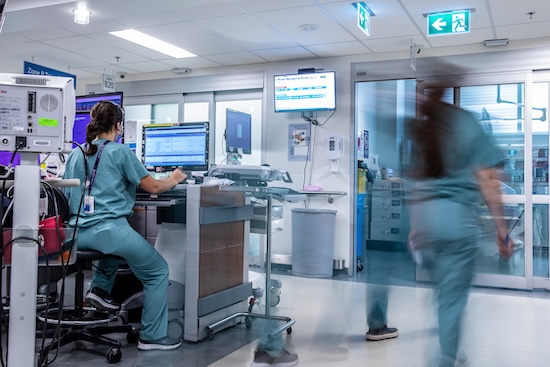
Unity Health Toronto has received $200 thousand in funding from Toronto Innovation Acceleration Partners (TIAP) under its Critical Technologies Program, to scale homegrown AI tools that support workforce planning in health care. One of the tools, the Emergency Department (ED) Nurse Assignment tool, has reduced the time it takes to assign up to 27 nurses to their roles for each shift from three hours to 15 minutes or less per day.
“We know that AI can be harnessed to automate tasks and to make predictions based on patterns in data,” says Dr. Muhammad Mamdani, VP of Data Science and Advanced Analytics at Unity Health. “At Unity Health Toronto we are developing AI tools leveraging these capabilities not only to improve patient outcomes but also to help teams operate more efficiently and plan for the future.”
Administrative burden is a well-documented issue in health care, with staff and physicians often citing paperwork as a primary reason for burnout. By creating AI optimization models that find the best solution, time-consuming administrative tasks can be almost entirely automated. This contributes to better well-being at work and enables health care teams to focus on what matters most – patient care.
Healthcare systems in Canada and abroad have also faced significant staffing shortages in recent years. Using machine learning AI models to predict future health human resource needs helps ensure teams are properly resourced to provide excellent care. It can also decrease costs by reducing health care organizations’ reliance on overtime hours and private staffing agencies to fill in gaps.
Unity Health Toronto is the first hospital network in Canada to have an applied AI team, and the only health care organization in the country that has developed and deployed over 50 applied AI tools to support clinical practice and operational decision-making. These tools result from data scientists teaming up with clinical staff to tackle challenges and use the power of data and AI to reduce wait times, customize treatments, make medicine more precise and improve health outcomes – even save lives.
This funding will be used to help generalize AI models currently being used at Unity Health Toronto, including:
• The Emergency Department Nurse Assignment Tool: This optimization tool helps nursing team leaders and administrative staff assign nurses to their role for each shift in the ED. It has reduced a daily task from three hours to 15 minutes or less. It has also reduced the ‘repeat rate’ – the number of times a nurse is assigned to the same role in back-to-back shifts – from 20+ per cent to 5 per cent. This helps to ensure nurses work in a variety of roles, creating more learning opportunities and job satisfaction.
• Interprofessional Resource Team planning: An interprofessional resource team (IRT) is a team of nurses and other health disciplines staff hired by a hospital to fill in for absences and leaves. This solution looks at historical data to predict the frequency of leaves and absences and helps leaders create IRTs with the right size and mixture of skills.
“We are exceedingly lucky to have a Data Science and Advanced Analytics team at Unity Health Toronto that can build these tools to help improve our work environment,” says Manson Locke, VP of Human Resources, Unity Health Toronto. “Many of the issues we face at Unity Health are being faced across the health system and this funding will help to ensure more healthcare organizations can benefit from the positive impact of these AI tools.”
As part of Ontario’s provincial Critical Technologies Initiative, TIAP has partnered with OBIO® to offer this new support to accelerate the health science industry’s use of 5G and advanced networks, blockchain, cybersecurity, ethical artificial intelligence (AI), quantum computing and/or robotics. If you are an innovator or entrepreneur with emerging life sciences technologies and/or an early-stage venture utilizing critical technologies and need support with IP management, company creation, and/or technology de-risking, access information on how TIAP may be able to help.


